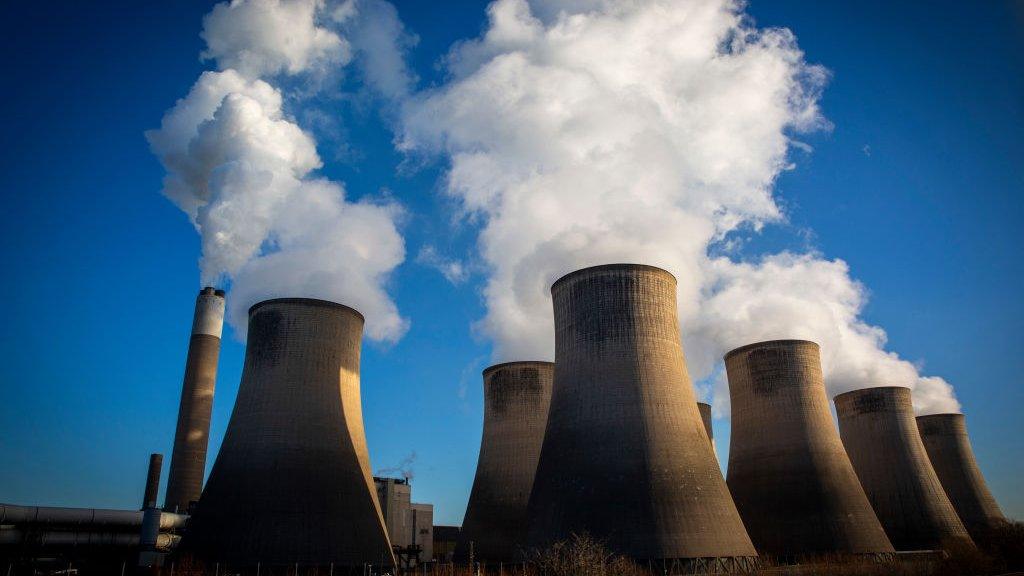Football: What impact do pre-season tours have on the environment?
- Published
- comments

Pre-season tours are said to be for the fans - like these Arsenal supports who wanted autographs from Gabriel Magalhaes after the Arsenal and Everton pre-season friendly in Baltimore, Maryland
Since the football season came to an end you might have missed seeing your favourite players - but that doesn't mean they haven't been busy elsewhere.
Between May and August each year, many clubs go on a pre-season tour to help keep the players in shape ahead of the upcoming football season.
Often this sees them jetting off to destinations around the world, with Arsenal, Chelsea and Manchester City off to the US, while Aston Villa, Crystal Palace and Manchester United have headed to Australia.
So why do they go so far away?
The aim is try to reach out to fans in other parts of the world where English Premier League teams wouldn't usually have the need to play, as well as attracting new fans in countries where football doesn't have as big an audience.
By playing matches in Asia, the Middle East or the US for example, clubs hope they can to increase their support abroad from sports fans who may not yet be supporting a team.
Arsenal - Germany, Baltimore and Orlando US
Chelsea - Las Vegas, North Carolina, Charlotte, and Orlando, US
Liverpool - Thailand and Singapore
Manchester City - Houston and Green Bay, US
Manchester United - Thailand, Perth and Melbourne, Australia, and Norway
Tottenham Hotspur - South Korea and Israel
Of course, not all clubs go to far away destinations. Others like Brentford have opted to stay closer to home by playing in European destinations, while many smaller clubs do their pre-season within the UK.
But for those that do, there have been discussions about the impact all this long-haul travel has on the environment.
Don't teams also travel during the rest of the year?
Teams also travel a lot during the football season. It's something that is often unavoidable in competition or league matches, as they typically play some games at home and others away.
But the games they play in the summer are friendlies, with the results having no effect on the team's ranking.
This has led some to question whether the environmental damage caused is worth teams travelling so far for what is a series of a non-competitive games.
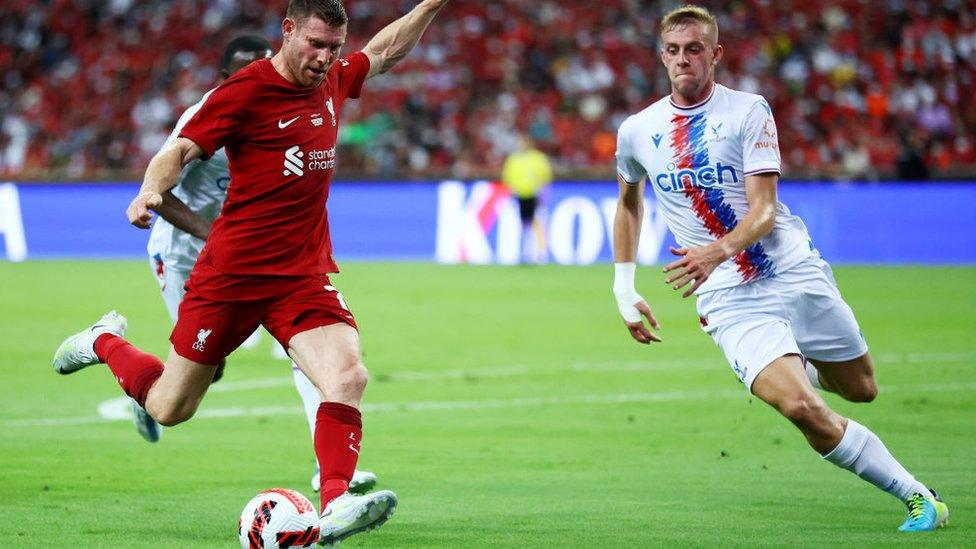
Liverpool and Crystal Palace played one another in Singapore's national stadium
How much damage do pre-season tours cause to the environment?
Almost all travel has some kind of environmental impact, with carbon emissions entering the environment from the fuel burned from planes and cars.
But many clubs say they will offset the damage - in this case, the carbon emissions generated by air travel.
Offsetting means that they will do something to help reduce greenhouse gas emissions or that will an increase in carbon storage, for example through land restoration or the planting of trees to make up for emissions that occur elsewhere.
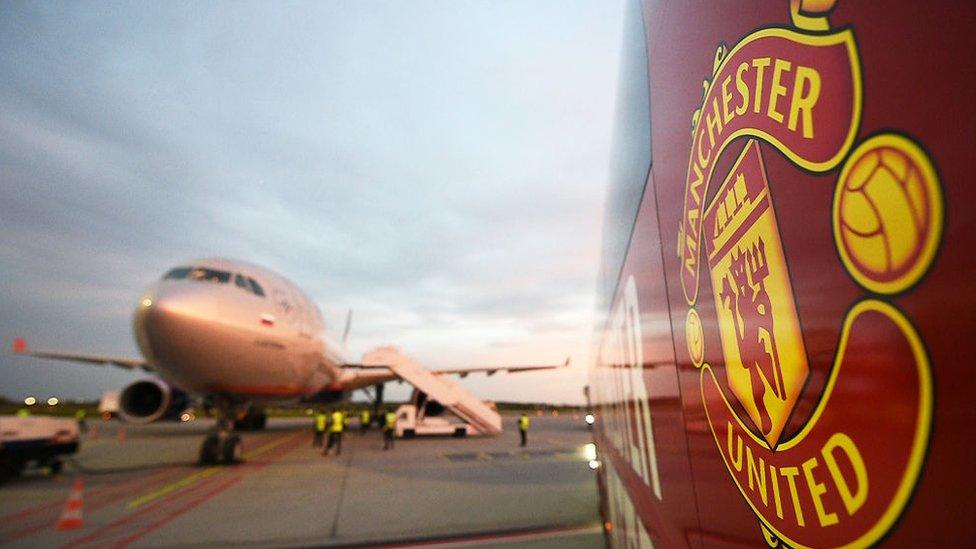
Manchester United says it is ranked in the top five most sustainable football clubs in the Premier League
Manchester United told Newsround they plan to do this through an investment in a reforestation project in Western Australia, having bought more than 1,800 tonnes of carbon offsets to cover all flights by the players and club staff during the tour of Thailand and Australia.
Collette Roche, the club's Chief Operating Officer, said: "While we are delighted to be back on tour, visiting our passionate global fan-base and preparing for the new season ahead, we are also pleased to be able to mitigate the environmental impact of our travel by investing in crucial biodiversity projects."
We must all take responsibility for the impact we have on our planet and as a football club with millions of fans globally we recognise that this is an important issue that we must take seriously and address
But Charlie Kronick, climate campaigner for worldwide environmental charity Greenpeace, said that while clubs taking steps to offset carbon is a good thing, it doesn't solve the problem and can also send out the wrong message when it comes to the environment.
In a statement to Newsround, he said: "To stop climate change, we need to stop polluting and help nature recover, particularly forests as they lock up carbon pollution.
"The problem with carbon offsetting is that it says you can carry on polluting if you just plant some trees. This is not true - we need to do both, cut pollution and protect forests."
When football teams pay to plant trees, that's a good thing, but if they say this makes their flights 'green' or 'sustainable', they're wrong.
Jenny Amann, from sporting charity the Spirit of Football, said that although there is a growing awareness of the climate crisis in the world of football - from fans to top-tier clubs - the energy intensity of pre-season tours raises serious doubts over their commitment towards tackling the issue.

Many football clubs have sent teams to countries thousand of miles away
She told Newsround: "We know that the lion's share of football's carbon emissions stem from travel, so travelling tens of thousands of miles via aircraft to all corners of the world on pre-season tours is directly at odds with clubs' ambitions to reduce their environmental impact.
"For instance, Liverpool are travelling 14,133 miles to Bangkok, Singapore, Germany and Austria before heading back to Anfield for the start of the Premier League season. This is topped by Spurs, who are travelling 15,532 miles and then Man United who are set to clock up 21,137 miles," she added.
These clubs, with their huge international fan bases, must do more to walk the talk on sustainability, reduce their environmental impacts wherever possible, and show their supporters that they are acting to protect the future of the club, the fans and the planet.
What has been suggested as an alternative for football clubs during pre-season?
Katie Cross is from Pledgeball - an organisation that does research and aims to encourage football fans to bring about change to help preserve our planet.
She has suggested that clubs limit their travel as much as possible, not just for environmental reasons but also to take into account the amount of money pre-season tours can cost.
Speaking to Newsround, she said: "Where tours have required flying abroad, the answer is a clear no.
"There are many reasons for clubs to do domestic tours: it would give domestic fans who don't get to see their clubs in the season, due to ticket availability and price, the chance to see them play; it would be better for player welfare, particularly in a year when the World Cup is further condensing the sporting calendar; and then obviously significant emissions are generated by this travel, at a time when clubs are talking environmental sustainability."
Every decision, individual and organisational, needs to be made with environmental impact at its core, and not just purely for environmental reasons but also for financial sustainability. Flying abroad for pre-season tours does not do this.
Elliot Arthur-Worsop, founder of Football for the Future, said he believes football clubs are making changes in the right direction but that more can be done.
He said: "In general, football clubs are far from realising their full potential when it comes to taking climate action, but we are now witnessing the early signs of a waking giant.
"There is an exciting opportunity for clubs across the pyramid to both communicate climate, and embrace environmentally sustainable operations, in ways that can improve the game for everyone involved."
Others say it's important to see not just football clubs but also others in the world of sport taking action and making visible changes to protect the planet.
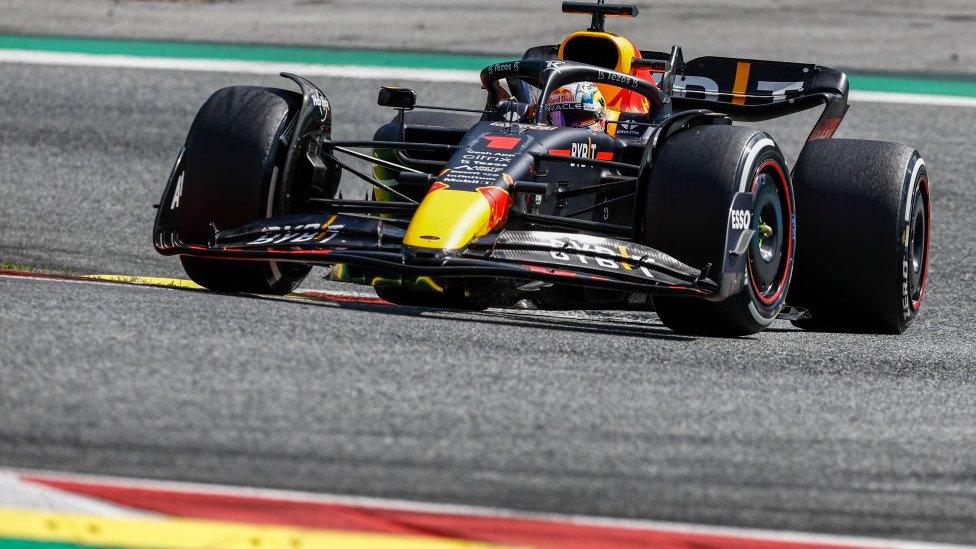
F1 is another area of sport that is being encouraged to make changes to show more care for the environment
Andrew Simms is coordinator of the Rapid Transition Alliance - a network of international organisations engaged in practical work, research and campaigning to tackle the climate emergency.
He has done research into the impact of global sport on the climate, and argues that sport as a whole should do more to set an example to other industries.
"Sport provides some of society's most influential role models. If sport can change how it operates to act at the speed and scale necessary to halt the climate emergency, others will follow," he said.
"At the moment sport is part of the problem, but it can become part of the solution."
- Published23 May 2022

- Published20 January 2020
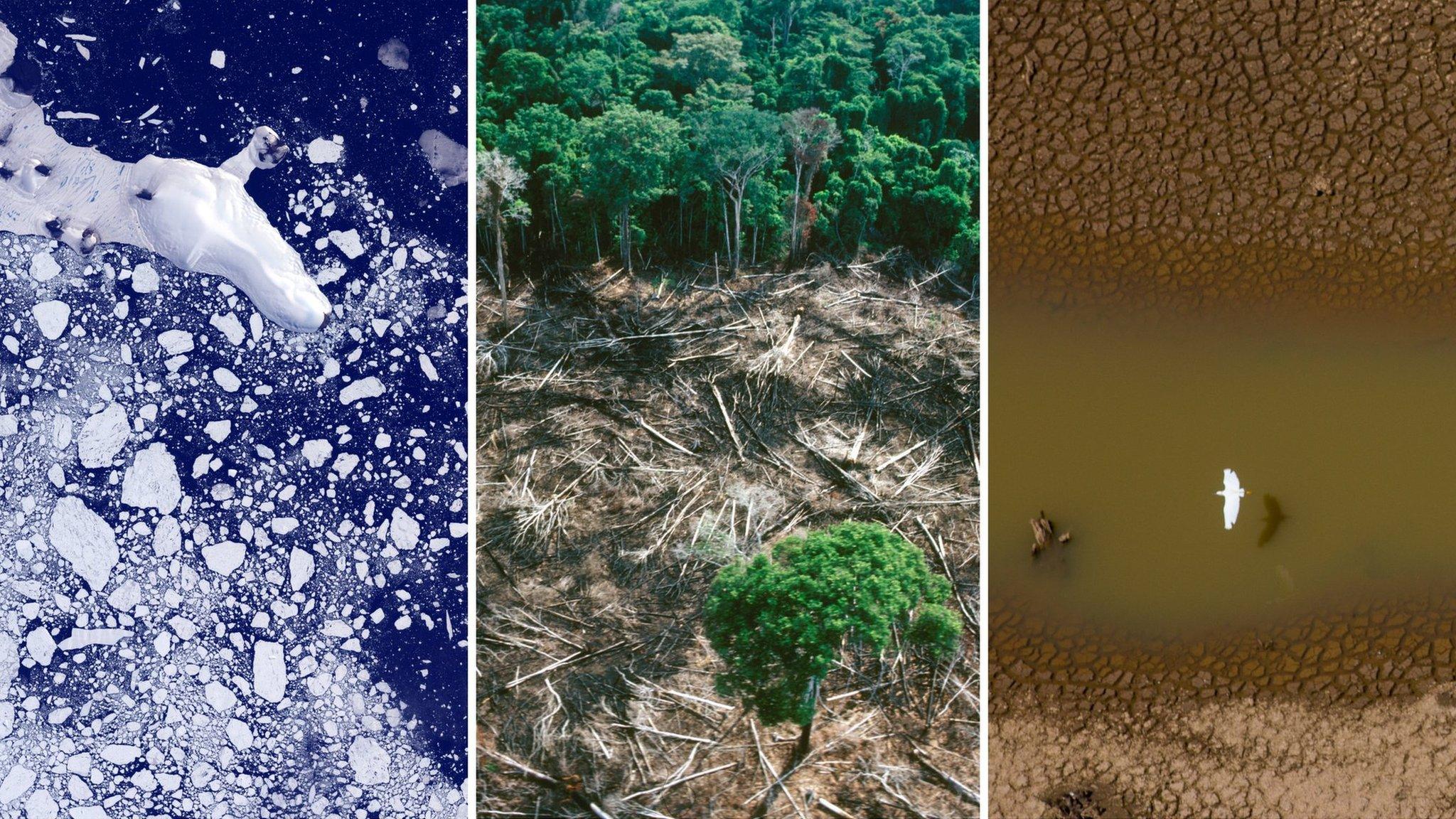
- Published4 December 2020
